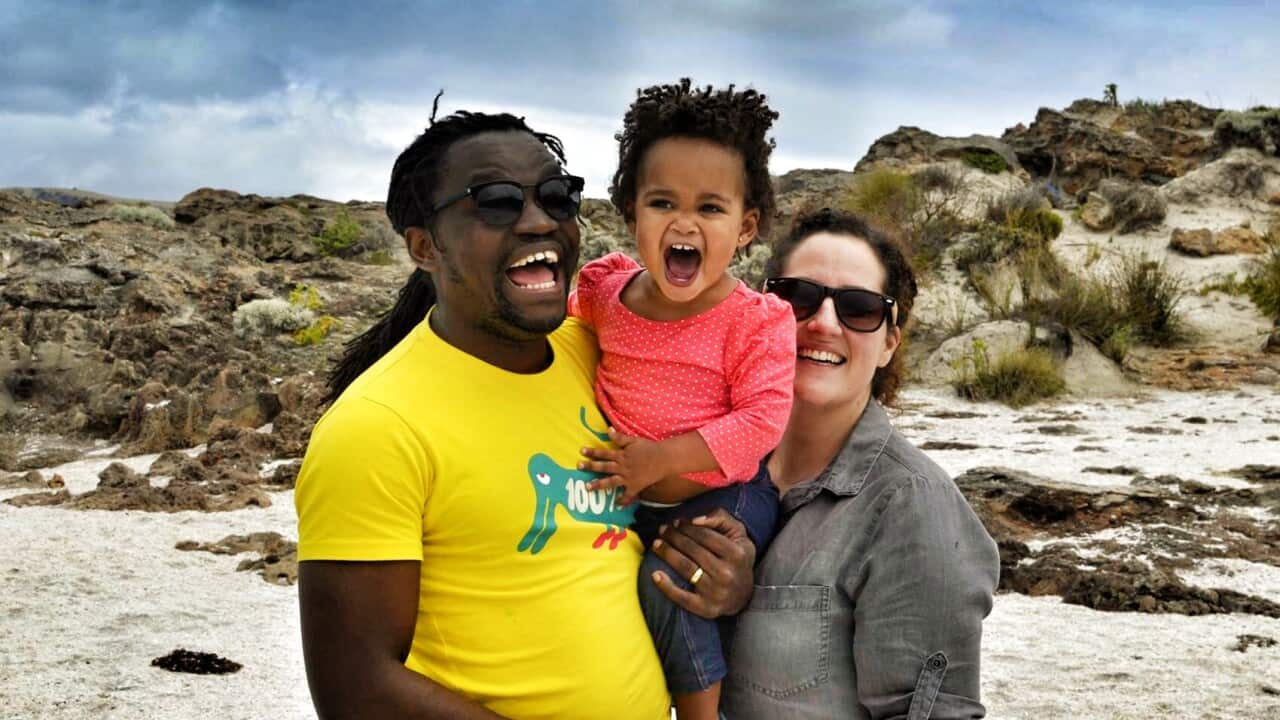As many people bring out the tree decorations and feast on baked ham, there are lots of Australians who don’t observe Christmas – and everyone has their own reasons.
Consumerism puts some off Christmas
Some argue that Christmas is too focused on consumerism, and the evidence suggests that we are getting caught up in the spending that comes with the season.
A looked at the most common words we use around Christmas; they included ‘sales’, ‘trading’, ‘spend’, ‘special’, and ‘retailers’.
For some, like Prosper Taruvinga, this knowledge is a driving force in turning their backs on Christmas. “When I was a child in Zimbabwe, Christmas was the time that you’d get the new shoes and clothes that would have to last for the whole year,” he says.
We’d then have what we call January Disease: everyone got paid at the end of the month, so when they’d spent everything at Christmas no one had money throughout January.
“We were really poor, but it was a money game. Parents would go out and spend all their money.
“We’d then have what we call January Disease: everyone got paid at the end of the month, so when they’d spent everything at Christmas no one had money throughout January. The kids were all suffering.”
This negative experience means that Taruvinga and his wife, Angela, have decided not to decorate their home or buy their two-year-old daughter, Kaliyah, presents for Christmas.
They’re choosing to avoid this excess spending that will certainly hit Australia this December. reports that, this year, each Australian will be left with around $1,666 in credit card debt after Christmas. What’s more, 82 per cent will be stuck with that debt for the next six months, while 11 per cent will take up to two years to pay off the presents that will, by then, have been long forgotten.
“My wife and I want to focus on creating family memories throughout the year instead,” says Taruvinga, who prefers to spend the money saved on family trips. “This January, we’re going to Bali.”
Times have changed: Christmas in modern Australia
Australians who don’t celebrate Christmas were once viewed with suspicion.
“As a child during the 1970s, Christmas was often an unpleasant affair,” says David Black, a Jewish Australian. “Our neighbours would often make nasty remarks and ensure that their children trotted out the latest, expensive toys in order to tease us and show why Christianity was superior to Judaism.
“In school, participation in the Christmas pageant and events was mandatory and I had no problem with that at all. But I would hear the odd remark about Jews killing Jesus, or that I should not be allowed to be involved.”
But times have changed. The showed that Australia’s religious diversity includes Judaism, Hinduism, Sikhism, Islam, and Buddhism as increasingly common beliefs.
I live in a block of flats these days, and of the people in eight flats there are only two that celebrate Christmas.
Following the Census data release, reported that many Christian religions are on the decline as this diversity takes hold: “Australia now has more Muslims and more Buddhists than Presbyterians; more Hindus than Baptists or Lutherans; and nearly as many Sikhs as Lutherans.”
And there are more people who declare themselves as part of no religion (30 per cent) than there are Catholics (22.6 per cent).
This affects how we view those who don’t observe the traditionally Christian celebration of Christmas; even if you celebrate Christmas, you’re likely to have friends and neighbours who don’t.
Black says this diversity has made his experience of Christmas much more positive. “People now realise there are different religions that don’t follow the format of Christianity. I live in a block of flats these days, and of the people in eight flats there are only two that celebrate Christmas.
“It's not my religion, but I wish the best to all Christians during this festive season. There isn’t a more beautiful festival in the world. It’s about peace and goodwill to all people, which is wonderful.”
Season's readings

Top your tree with an inspirational woman this Christmas

